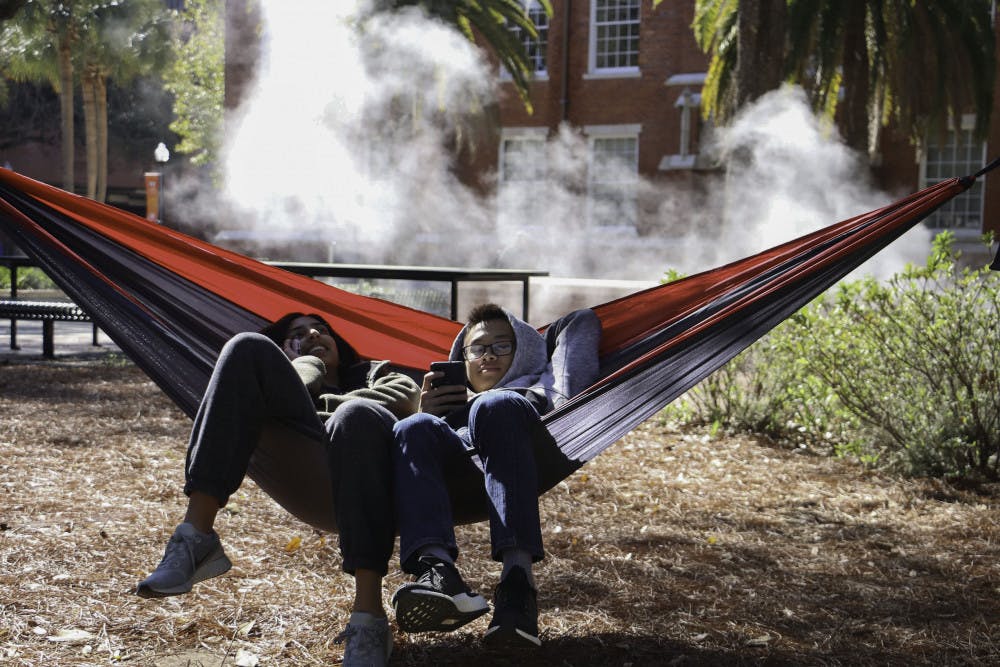David Hall, a 26-year-old UF agricultural economics masters student, sat downwind from a billowing manhole on the Plaza of the Americas during Tuesday. He’s eaten Krishna lunch there almost every day since he began at UF in 2011.
“It wasn’t always like this,” Hall said as a pocket of hot steam enveloped him.
The words “Danger, hot, keep off” were painted on UF manhole covers in 2014. The covers can reach temperatures around 150 degrees Fahrenheit, and UF Facilities Services added barricades to keep students away.
This was a temporary solution until a better, more permanent one could be implemented. Six years later, the barricades are still up.
There are more than 200 manholes on campus, said Douglas “Bubba” Boyd, an employee of the UF utilities and energy department. All were built in the ‘60s and it’s likely that a majority have fallen into a state of disrepair in the decades since, he said.
“It’s way past time for them to do some rehabilitative work,” Boyd said.
Manholes are access points in the ground that let facility workers maintain the network of underground piping below, he said. Those pipes contain hot water and steam, and they control the temperature and humidity in surrounding buildings.
Rain and groundwater can seep through leaks in pipes to strike the water, causing hot steam to billow up and out of the manholes, Boyd said.
The steam isn’t toxic, he said, but its heat poses a safety risk to students and staff.
When the steam spews out, the manhole covers can reach temperatures hot enough to fry an egg. If someone touches it with their bare hands or feet, they’ll be scalded, Boyd said.
He recalled an incident three years ago when a couple and their toddler were jogging around Ben Hill Griffin stadium. The toddler tripped and put a hand out to catch himself – directly on a steaming cover, where his hand was burned.
It’s rare that accidents like that happen, Boyd said, but they are serious, and need a solution.
The current plan is to repair all 200 manholes on campus, he said. This has been the plan since 2014, but they only secured sufficient funds in 2019.
The manholes will be disassembled to repair leaks, and vents will be added to redirect rainwater from the hot pipes.
The process is time consuming and disruptive to campus activities, Boyd said. The hot water must be shut off for workers to get into the manholes, which means surrounding buildings will be without air-conditioning and humidity control for a time.
The repairs must take place over summer, when there are fewer students and faculty on campus, Boyd said.
Repairs began in Summer 2019. So far, only around 20 manholes have been repaired.
There is no projected end date for the repairs, Boyd said. If the facilities department continues to mend the manholes at a rate of 20 per summer, all should be repaired by 2028.
Until then, barriers and a painted warning will serve as a reminder to students to stay away.
Contact Hannah Phillips at hphillips@alligator.org. Follow her on Twitter @haphillips96.
Zoya Mukherjee, an 18-year-old biology freshman, and Justin Ho, an 18-year-old computer science freshman, hang out near a barricaded manhole in the Plaza of the Americas Tuesday afternoon. Mukherjee said that it smells odd and Justin said that people do not like to sit near it.






